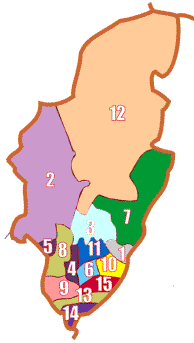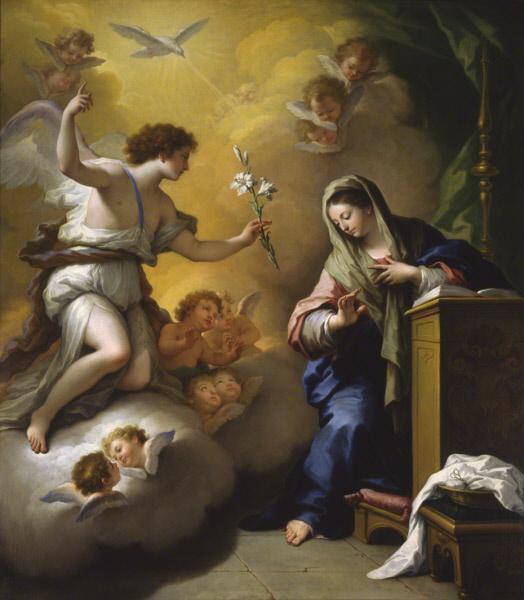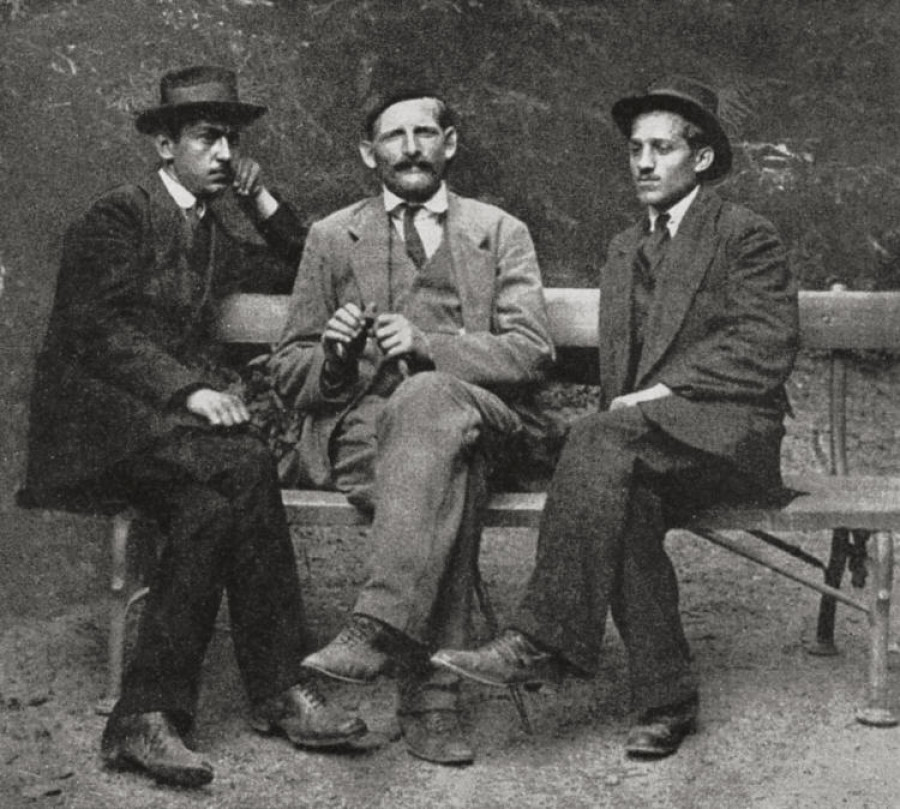|
Vidovdan Heroes Chapel
The Vidovdan Heroes Chapel is a Serbian Orthodox Church, Serbian Orthodox chapel and mausoleum located on the Holy Archangels Georgije and Gavrilo Orthodox Cemetery located in Sarajevo, Bosnia and Herzegovina. The crypt of the chapel contains the bodily remains of Gavrilo Princip and other members of Young Bosnia who took part in the assassination of Archduke Franz Ferdinand on 28 June 1914. In 2019, the chapel was renovated. Burials The twelve people interred in the crypt of the chapel are Gavrilo Princip, Bogdan Žerajić, Vladimir Gaćinović, Nedeljko Čabrinović, Danilo Ilić, Veljko Čubrilović, Neđo Kerović, Mitar Kerović, Miško Jovanović, Mihajlo Miško Jovanović, Jakov Milović, Trifko Grabež and Marko Perin. Notes References External links {{DEFAULTSORT:Vidovdan, Heroes Chapel Buildings and structures completed in 1939 Chapels in Bosnia and Herzegovina Mausoleums in Bosnia and Herzegovina Tourist attractions in Sarajevo Assassination of Archduk ... [...More Info...] [...Related Items...] OR: [Wikipedia] [Google] [Baidu] |
Centar, Sarajevo
Centar (Cyrillic: Центар, lit. ”Center") is a municipality of the city of Sarajevo, Bosnia and Herzegovina. It is located between the older parts of the city under Stari Grad, and the newer more modern parts of the city under the municipalities Novi Grad and Novo Sarajevo. The Centar municipality, according to the government website, is the administrative, business, commercial, cultural, educational, and medical centre of Sarajevo. Although some of these may be disputed, Centar is certainly the most important part of Sarajevo, housing most major branches of the city and national governments. The municipality of Centar occupies 3,313 hectrates of land, of which close to 17% is housing. The amount of private and state owned land is nearly equal, with 1600 and 1713 hectrates respectively. The municipality celebrates May 2 as "Centar Municipality Day", in commemoration of the heroic defense by citizens of the aggressor's assault on the Building of the Presidency of Bosnia ... [...More Info...] [...Related Items...] OR: [Wikipedia] [Google] [Baidu] |
Danilo Ilić
Danilo Ilić (Serbian Cyrillic: Данило Илић; 27 July 1890 – 3 February 1915) was a Bosnian Serb who was among the chief organisers of the Assassination of Archduke Franz Ferdinand. Biography Born in what is modern-day Bosnia and Herzegovina, he attended the State Teachers' College in Sarajevo and for a while taught at a school in Bosnia. In 1913, Ilić moved to Belgrade where he became a journalist and a member of the Black Hand secret society. Ilić returned to Sarajevo in 1914 where he worked as an editor of a local Serb newspaper. He became a member of Mlada Bosna (''Young Bosnia'').Edward R. Kantowicz. The rage of nations. Grand Rapids, Michigan, USA; Cambridge, England, UK: Eerdmans Publishing Co, 1999. p. 97. He recruited Gavrilo Princip, Nedeljko Čabrinović, Vaso Čubrilović, Trifko Grabež, Muhamed Mehmedbašić, and Cvjetko Popović to assassinate Archduke Franz Ferdinand of Austria, which led directly to World War I. He and Gavrilo Princip were close ... [...More Info...] [...Related Items...] OR: [Wikipedia] [Google] [Baidu] |
Tourist Attractions In Sarajevo
Tourism is travel for pleasure or business; also the theory and practice of touring, the business of attracting, accommodating, and entertaining tourists, and the business of operating tours. The World Tourism Organization defines tourism more generally, in terms which go "beyond the common perception of tourism as being limited to holiday activity only", as people "travelling to and staying in places outside their usual environment for not more than one consecutive year for leisure and not less than 24 hours, business and other purposes". Tourism can be domestic (within the traveller's own country) or international, and international tourism has both incoming and outgoing implications on a country's balance of payments. Tourism numbers declined as a result of a strong economic slowdown (the late-2000s recession) between the second half of 2008 and the end of 2009, and in consequence of the outbreak of the 2009 H1N1 influenza virus, but slowly recovered until the COVID-19 ... [...More Info...] [...Related Items...] OR: [Wikipedia] [Google] [Baidu] |
Mausoleums In Bosnia And Herzegovina
A mausoleum is an external free-standing building constructed as a monument enclosing the interment space or burial chamber of a deceased person or people. A mausoleum without the person's remains is called a cenotaph. A mausoleum may be considered a type of tomb, or the tomb may be considered to be within the mausoleum. Overview The word ''mausoleum'' (from Greek μαυσωλείον) derives from the Mausoleum at Halicarnassus (near modern-day Bodrum in Turkey), the grave of King Mausolus, the Persian satrap of Caria, whose large tomb was one of the Seven Wonders of the Ancient World. Historically, mausolea were, and still may be, large and impressive constructions for a deceased leader or other person of importance. However, smaller mausolea soon became popular with the gentry and nobility in many countries. In the Roman Empire, these were often in necropoles or along roadsides: the via Appia Antica retains the ruins of many private mausolea for kilometres ou ... [...More Info...] [...Related Items...] OR: [Wikipedia] [Google] [Baidu] |
Chapels In Bosnia And Herzegovina
A chapel is a Christian place of prayer and worship that is usually relatively small. The term has several meanings. Firstly, smaller spaces inside a church that have their own altar are often called chapels; the Lady chapel is a common type of these. Secondly, a chapel is a place of worship, sometimes non-denominational, that is part of a building or complex with some other main purpose, such as a school, college, hospital, palace or large aristocratic house, castle, barracks, prison, funeral home, cemetery, airport, or a military or commercial ship. Thirdly, chapels are small places of worship, built as satellite sites by a church or monastery, for example in remote areas; these are often called a chapel of ease. A feature of all these types is that often no clergy were permanently resident or specifically attached to the chapel. Finally, for historical reasons, ''chapel'' is also often the term used by independent or nonconformist denominations for their places of wors ... [...More Info...] [...Related Items...] OR: [Wikipedia] [Google] [Baidu] |
Buildings And Structures Completed In 1939
A building, or edifice, is an enclosed structure with a roof and walls standing more or less permanently in one place, such as a house or factory (although there's also portable buildings). Buildings come in a variety of sizes, shapes, and functions, and have been adapted throughout history for a wide number of factors, from building materials available, to weather conditions, land prices, ground conditions, specific uses, prestige, and aesthetic reasons. To better understand the term ''building'' compare the list of nonbuilding structures. Buildings serve several societal needs – primarily as shelter from weather, security, living space, privacy, to store belongings, and to comfortably live and work. A building as a shelter represents a physical division of the human habitat (a place of comfort and safety) and the ''outside'' (a place that at times may be harsh and harmful). Ever since the first cave paintings, buildings have also become objects or canvasses of much artistic ... [...More Info...] [...Related Items...] OR: [Wikipedia] [Google] [Baidu] |
Georgije
Georgije ( sr-Cyrl, Георгије, is a Serbian masculine given name, derived from the Greek Georgios. It is, along with the variants Đorđe, Đurađ and Đuraš, the equivalent of the English George. The surname Georgijević stems from the name. The name's name day is on 6 May. It may refer to: * Georgije "Đura" Jakšić * Georgije Branković * Georgije Bakalović * Georgije Mitrofanović * Georgije Ilić * Georgije Magarašević * Georgije Ostrogorski * Georgije Đokić * Georgije Bogić * Georgije Hranislav See also * Đura Đura ( sr-Cyrl, Ђура; also transliterated Djura) is a Serbian male given name derived from ''Đurađ'' (a Serbian variant of ''George''). It may refer to: * Đura Dokić (1873–1946), a Serbian general, notable for being an Axis collabora ..., diminutive References Further reading * {{DEFAULTSORT:Georgije Serbian masculine given names ... [...More Info...] [...Related Items...] OR: [Wikipedia] [Google] [Baidu] |
Archangel
Archangels () are the second lowest rank of angel in the hierarchy of angels. The word ''archangel'' itself is usually associated with the Abrahamic religions, but beings that are very similar to archangels are found in a number of other religious traditions. Archangels also appear in the religious texts of Gnosticism. The English word ''archangel'' is derived from Greek ἀρχάγγελος (arkhángelos), the Greek prefix " arch-" meaning "chief". A common misconception is that archangels are the highest rank of angel, this misconception stems from John Milton's '' Paradise Lost'' and likely confusion over the "arch-" prefix. Description Michael and Gabriel are recognized as archangels in Judaism, Islam, and by most Christians. Some Protestants consider Michael to be the only archangel. Raphael—mentioned in the deuterocanonical Book of Tobit—is also recognized as a chief angel in the Catholic and Eastern Orthodox churches. Gabriel, Michael, and Raphael are venerated ... [...More Info...] [...Related Items...] OR: [Wikipedia] [Google] [Baidu] |
Marko Perin
Marko may refer to: * Marko (given name) * Marko (surname) * Márkó, a village in Hungary See also * Marco (other) * Markko (other) * Marka (other) * Markov * Marku * * {{disambiguation, surname ... [...More Info...] [...Related Items...] OR: [Wikipedia] [Google] [Baidu] |
Trifko Grabež
Trifun "Trifko" Grabež ( sr-Cyrl, Трифун Трифко Грабеж; – 21 October 1916) was a Bosnian Serb member of the Black Hand organization which was involved in the assassination of Archduke Franz Ferdinand. Early life Trifko Grabež was born on in Pale, a small town in eastern Bosnia and Herzegovina. His father Đorđe Grabež was a Serbian Orthodox priest. At the age of seventeen, Grabež was expelled from school for striking one of his teachers. Grabež left home and moved to Belgrade, which was a part of the Kingdom of Serbia at the time. As well as continuing his education he joined the Black Hand secret society. For the next two years he spent most of his spare time with other nationalists who favoured a union between Bosnia and Herzegovina and Serbia. Black Hand When it was announced that Archduke Franz Ferdinand, the heir to the throne of Austro-Hungarian Empire, was going to visit Bosnia and Herzegovina in June 1914, Colonel Dragutin Dimitrijević, th ... [...More Info...] [...Related Items...] OR: [Wikipedia] [Google] [Baidu] |
Jakov Milović
Jakov ( sr-Cyrl, Јаков, ) is a Croatian and Serbian masculine given name, a variant of the biblical names '' Jacob'' and James. Often the nicknames of Jaki/Јаки, Jakša/Јакша and Jakica/Јакица will be used for people bearing the name. It may refer to: * Jakov (bishop), Serbian medieval archbishop * Jakov Bienenfeld, Croatian entrepreneur and developer * Jakov Brdar, Slovenian-Bosnian sculptor * Jakov Cindro, Croatian politician * Jakov Fak, Croatian-Slovenian biathlete * Jakov Filipović, Croatian football player *Jakov Geller, Russian Grand Master * Jakov Gojun, Croatian handball player * Jakov Gotovac, Croatian composer and conductor * Jakov Grcić, Croatian futsal player * Jakov Ignjatović, Serbian-Hungarian novelist and prose writer * Jakov Lind, Austrian-British writer * Jakov Mikalja, Italian linguist and lexicographer of Slavic ancestry * Jakov Nenadović, Serbian military commander and politician * Jakov Sedlar, Croatian film director and producer ... [...More Info...] [...Related Items...] OR: [Wikipedia] [Google] [Baidu] |
Miško Jovanović
Mihajlo "Miško" Jovanović (Serbian Cyrillic alphabet, Serbian Cyrillic: Михајло Мишко Јовановић; 15 June 1878 – 3 February 1915) was a Serbs of Bosnia and Herzegovina, Bosnian Serb who was involved in the Assassination of Archduke Franz Ferdinand, assassination of Archduke Franz Ferdinand of Austria. He was a Narodna Odbrana agent who aided the assassins of Young Bosnia. On 3 February 1915, he was executed by Austria-Hungary, along with Danilo Ilić and Veljko Čubrilović. References Literature * * 1878 births 1915 deaths Assassination of Archduke Franz Ferdinand of Austria Austro-Hungarian rebels Bosnia and Herzegovina people of World War I Burials at Holy Archangels Cemetery, Sarajevo Executed Bosnia and Herzegovina people People executed by Austria-Hungary People from Tuzla Serbs of Bosnia and Herzegovina Young Bosnia {{BosniaHerzegovina-bio-stub ... [...More Info...] [...Related Items...] OR: [Wikipedia] [Google] [Baidu] |



.jpeg/1200px-Taj_Mahal_(Edited).jpeg)



